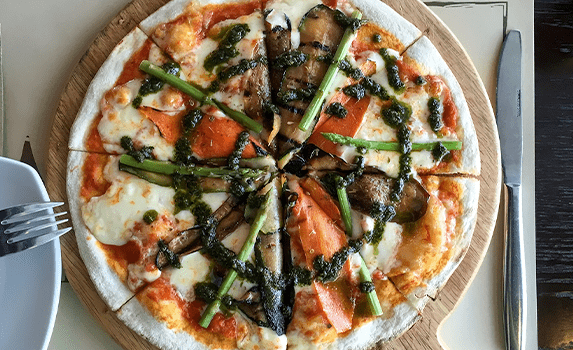Dr.Oetker2022-02-02T08:07:30+00:00
Thinking about going vegetarian? There are many health benefits when you choose to focus on a plant-based diet. The TastyMoments team have been giving it a try, and we’ve got a couple of tips to help first-time vegetarians get started.
It’s not as difficult as you think
The good news is that it is really not that difficult to transition to becoming a full-time veggie person. There are so many delicious meat substitutes these days. You – and your entire family – will not notice the difference. With soy alternatives to, for example, minced meat, you could still make an excellent spaghetti bolognaise served with a bowl of Nice ‘n Easy Green Valley spinach. Pair it with some chopped avo and tomato. Or, if you were planning a curry, simply substitute the chicken with tofu. Dinner sorted.
Remember the benefit of avoiding saturated fats
Let’s face it, saturated fats found in meats are harmful and inflammatory. But good fats, such as those found in vegetables and nuts, are superfoods that lower our risk of heart disease, diabetes and hypertension. A veggie diet allows you to enjoy more healthy-omegas that for sustained energy and focus.
Write it down
If you decide to try a vegetarian diet, take a moment to write down the reasons for your decision. Stick it on the fridge or your bathroom mirror. Any significant change requires a good deal of motivation and reaffirmation. If you have a point of reference, you’ll be reminded of the many good reasons for your decision – and be more likely to stick to your resolve.
Read up on the benefits of being a vegetarian
An understanding of the benefits of this lifestyle choice will really help. For example, eating plants instead of meat is better for the planet! Also, compile a list of 5 – 10 lekker everyday recipes such as soy lasagne (soy is a complete protein), a handy hummus dip, a fabulous feta and broccoli soup, and so on. With all the delicious meat substitutes on the shelves these days, in many ways, you can actually carry on eating exactly as you have before.
A gradual transition
Some people adjust better if they cut out one thing per week. You could, for example, cut out red meat during week one, chicken in week two and finally fish. Unless you want to remain a pescatarian (Vegans, Pegans and Flexatarians). It is worth noting that most new vegetarians report that they had no cravings for staples of their previous diet after 1 – 2 weeks. Some even migrate from cows’ milk to delicious alternatives such as almond milk.
Take heart; you can still enjoy a braai!
The TastyMoments team have often remarked how people lap up the non-meat items at a braai. Check out how quickly the Ital Pizza Snack Slices Margarita, braai broodjies or that slab of halloumi cheese, butternut cooked on the fire, disappear – long before the boerewors. And, if you are a guest, make sure you take a dish, so no one is inconvenienced. Why not try this awesome braai-veggies recipe we’ve been working on?
Remember that it’s all about balance
Many first-time vegetarians battle to maintain the diet because they haven’t adjusted their mindset to put veggies at the centre of the plate. Many think that vegetarianism is just about eating pasta with lots of cheese. But a diet loaded with refined carbs and dairy is as unhealthy – whether you skip the meat or not. The trick is balance – everything in life is about moderation. You can enjoy a delicious Nice ‘nEasy Mac and Cheese but pair it with a fresh green salad or a nice warm veggie soup as a starter.
Given the considerations about the environment, living costs, and health benefits, vegetarianism is worth a thought. And the family will love the bragging rights, we think.

